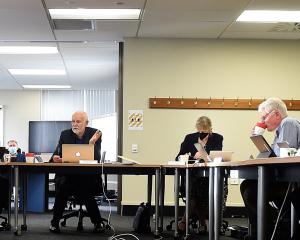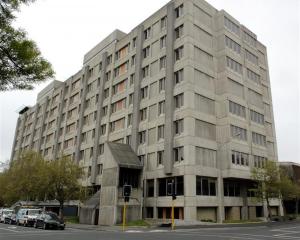Good patient care is being achieved through the "largely invisible" and unsustainable efforts of staff, a report about Southern District Health Board work practices says.
The Safe Staffing Healthy Workplaces Unit, a joint initiative of district health boards and the New Zealand Nurses Organisation, conducted the review to inform changes in work practices.
Southern is the sixth health board to introduce the Care Capacity Demand Management system, which is designed to better match resources to patients.
The report, partly based on a large staff survey carried out in July, was released by the Southern board this week.
Mostly, staff felt supported by the organisation, and had strong ties with the community, the report said.
However, some of their efforts to maintain high-quality services were unsustainable.
"There are signs of fatigue amongst many staff groups that need to be acknowledged and addressed [by the new work practices]," the report said.
However, "discretionary effort" (such as unpaid overtime) reported at Southern was in line with other health boards.
Overall, the survey results were similar to other boards. However, Southland staff appear happier than those in Dunedin.
In comparison with other health boards' staff, Southern staff, especially those in Dunedin, were less likely to feel comfortable challenging senior staff about patient care.
Southern staff, especially Dunedin, were more likely than other boards' staff to report more patients were taken into the service than it could handle.
Staff in Dunedin were almost twice as unhappy with their physical work environment than staff in Southland.
Asked what the organisation valued, 60% said achieving budgets and targets was more considered important than staff wellbeing, which was similar to levels at other boards.
The report advised greater efforts to engage doctors, who accounted for just 6% of the 1241 survey respondents. Doctors also did not engage in any interviews, of which there were 35.
Asked if they had worked past the end of their normal shift in the past six months, 25% of staff said they did so most days, slightly higher than other boards.
More than 50% reported not claiming overtime or time in lieu. Asked why, staff reported time sheets being changed by managers, being discouraged by managers from claiming overtime and onerous requirements for claiming.
The amount of "care rationing" - putting off care because of a lack of resources - was similar to other boards, but more common in Dunedin than Southland.
In Dunedin, 47.7% of staff reported often having to unduly delay care or treatment for patients in the past six months. In Southland, 40.5% reporting delaying care often or very often.
In Dunedin, 36.5% had often been unable to carry out care to an acceptable standard in the previous six months, compared with 28.2% in Southland.
Chief nursing and midwifery executive director Leanne Samuel said the report formed a baseline from which to measure hoped-for improvements.
She was pleased the results were not too different from those of other boards, but acknowledged there was room for improvement.











